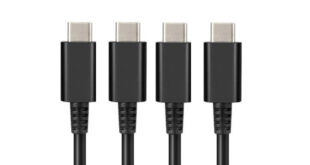Switch platformer Super Mario Odyssey has broken Mario sales records on both sides of the Atlantic.
Nintendo has announced that the game shifted 1.1m units in the US in its first five days, making it the fastest selling Super Mario game ever in the region – a record it claims from Wii title New Super Mario Bros.
It has also become the fastest selling Switch game to date. Nintendo also highlighted the title’s 97 per cent Metacritic rating, which includes 43 perfect scores, making it the highest rated game for any system (alongside Zelda: Breath of the Wild) for the last three years.
In Europe, the game has also claimed a new series record, beating the numbers recorded by Wii outing Super Mario Galaxy 2. Famitsu numbers have indicated opening weekend physical sales of over 500k in Japan, too.
“The public continues to respond positively to Mario’s latest adventure,” Nintendo of America’s president and COO Reggie Fils-Aime said. “We’re also seeing sales momentum for Nintendo Switch thanks to an ever-growing catalogue of games from large publishers and indie developers.”
In the UK, Mario just missed out on the chart top spot on its debut (a title claimed by Ubisoft’s Assassin’s Creed Origins). Nonetheless, Mario Odyssey comfortably beat the week one number of The Legend of Zelda: Breath of the Wild to become the Switch’s biggest UK week one. It also bettered the week one performance of every Wii U title, becoming Nintendo’s sixth biggest ever UK launch.
Nintendo this week increased its sales forecast for the Switch.
Prior to the release of Mario Odyssey, the company said that it had sold 27.5m Switch game units. Zelda: Breath of the Wild was then the biggest hit (4.7m units) followed by Mario Kart 8 Deluxe (4.42m) and Splatoon 2 (3.61m). 1-2 Switch (1.37m) and Arms (1.35m) are both million-copy sellers, too.

 MCV/DEVELOP News, events, research and jobs from the games industry
MCV/DEVELOP News, events, research and jobs from the games industry




